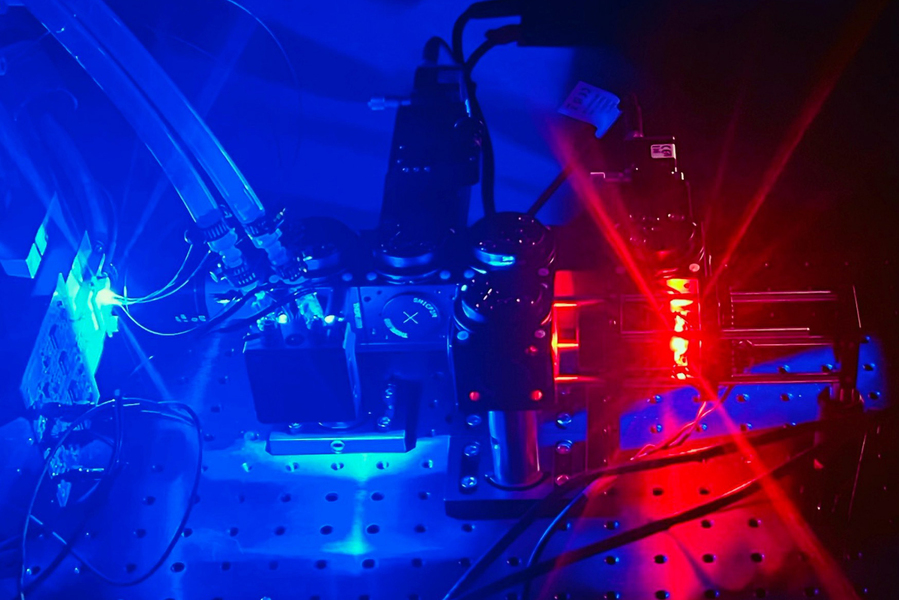Measuring the density of a cell can reveal a great deal about the cell’s state. As cells proliferate, differentiate, or undergo cell death, they may gain or lose water and other molecules, which is revealed by changes in density.
Tracking these tiny changes in cells’ physical state is difficult to do at a large scale, especially with single-cell resolution, but a team of MIT researchers has now found a way to measure cell density quickly and accurately — measuring up to 30,000 cells in a single hour.
The researchers also showed that density changes could be used to make valuable predictions, including whether immune cells such as T cells have become activated to kill tumors, or whether tumor cells are susceptible to a specific drug.

